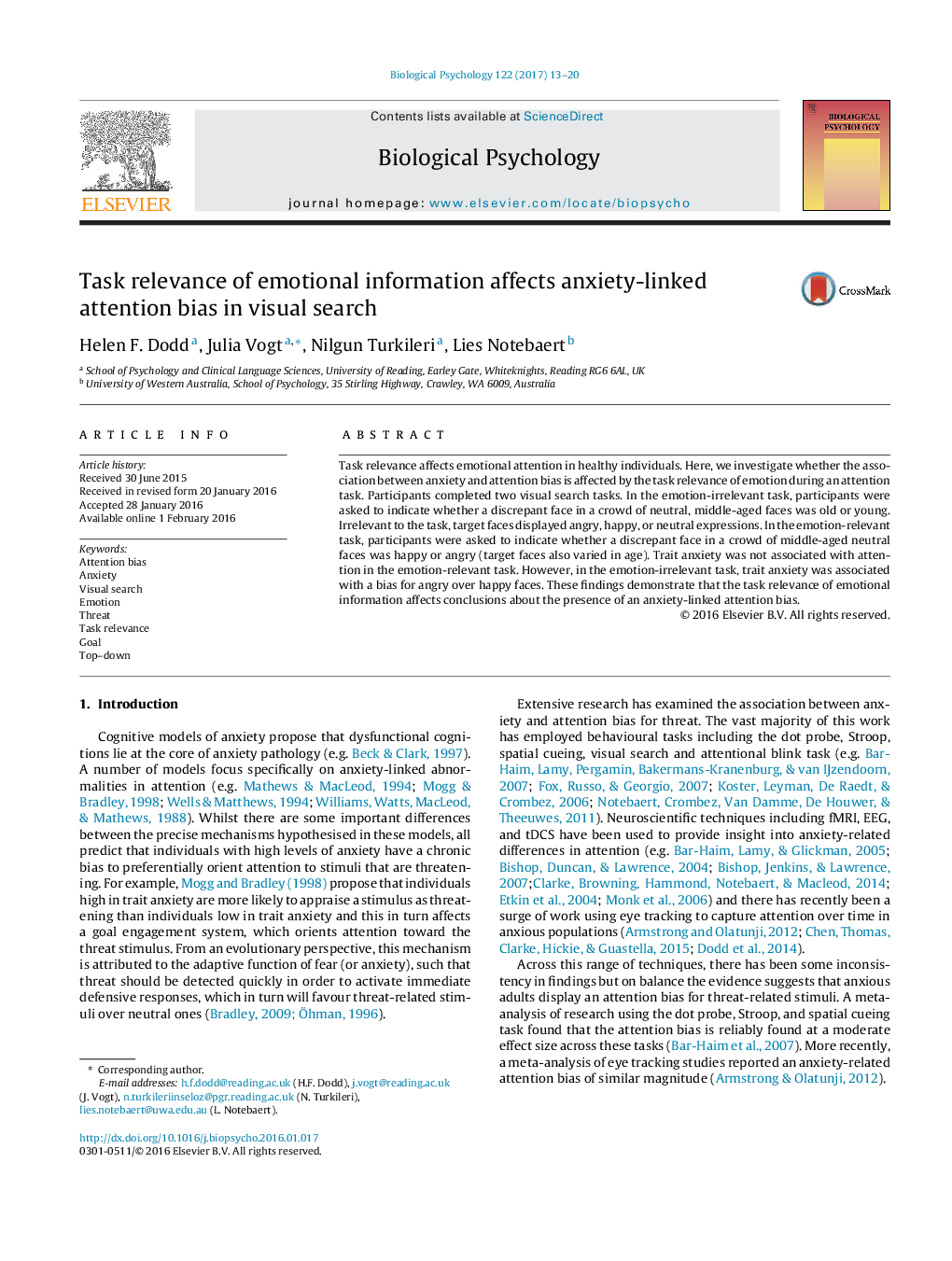| Article ID | Journal | Published Year | Pages | File Type |
|---|---|---|---|---|
| 5040504 | Biological Psychology | 2017 | 8 Pages |
â¢Recent evidence suggests that top-down processes affect emotional attention.â¢Attention bias was measured using two versions of a visual search task.â¢An anxiety-linked bias for angry above happy faces was found when emotion was not task relevant.â¢No anxiety-linked bias was found when the task goal was to find emotional faces.â¢Manipulating task relevance of emotion affects anxiety-linked attention bias.
Task relevance affects emotional attention in healthy individuals. Here, we investigate whether the association between anxiety and attention bias is affected by the task relevance of emotion during an attention task. Participants completed two visual search tasks. In the emotion-irrelevant task, participants were asked to indicate whether a discrepant face in a crowd of neutral, middle-aged faces was old or young. Irrelevant to the task, target faces displayed angry, happy, or neutral expressions. In the emotion-relevant task, participants were asked to indicate whether a discrepant face in a crowd of middle-aged neutral faces was happy or angry (target faces also varied in age). Trait anxiety was not associated with attention in the emotion-relevant task. However, in the emotion-irrelevant task, trait anxiety was associated with a bias for angry over happy faces. These findings demonstrate that the task relevance of emotional information affects conclusions about the presence of an anxiety-linked attention bias.
